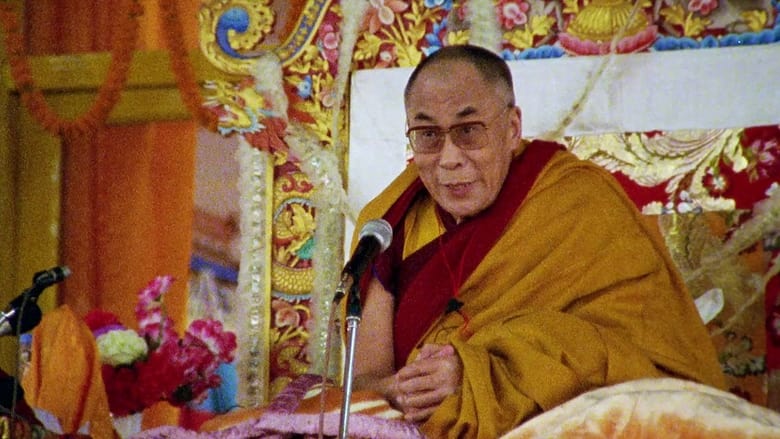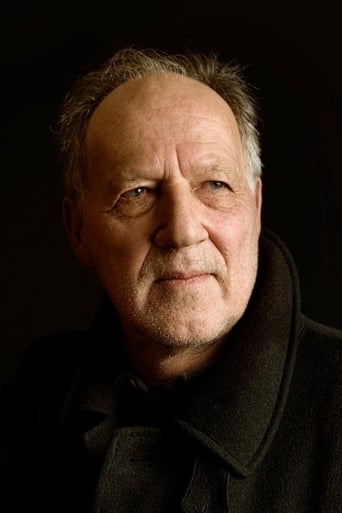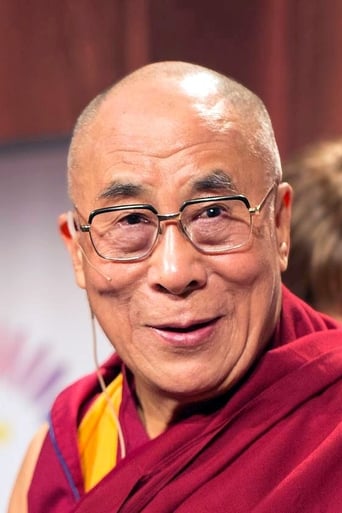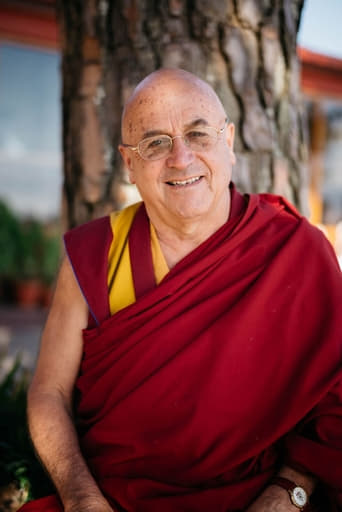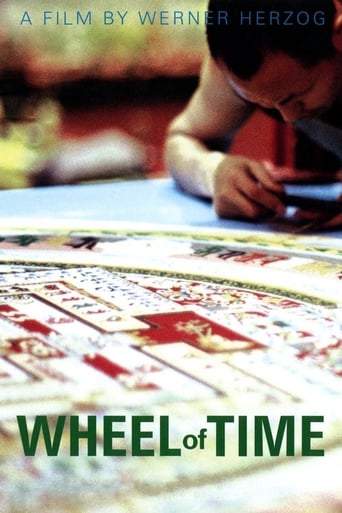
Wheel of Time is Werner Herzog's photographed look at the largest Buddhist ritual in Bodh Gaya, India.
Similar titles
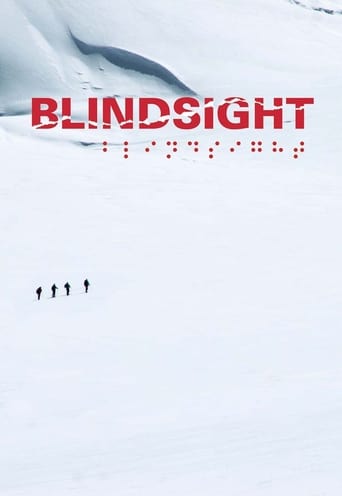

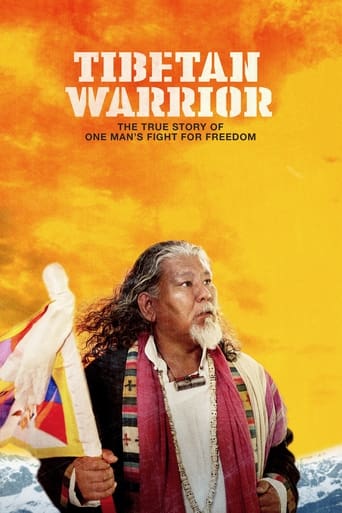

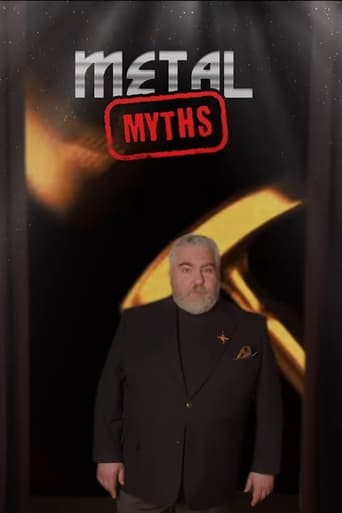
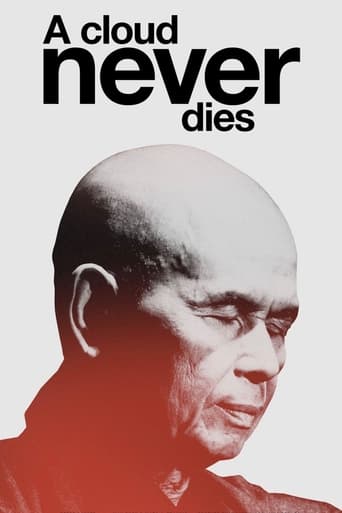
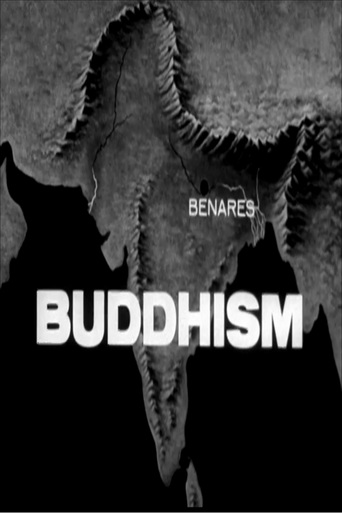

Reviews
Purely Joyful Movie!
If you don't like this, we can't be friends.
Admirable film.
Let me be very fair here, this is not the best movie in my opinion. But, this movie is fun, it has purpose and is very enjoyable to watch.
Werner Herzog's "Wheel of Time" watches as Tibetan Buddhist monks embark on a pilgrimage to Bodh Gaya, India. Once there, they create sand mandalas and engage in a series of elaborate rituals."Everyone is the centre of their own universe," the Dalai Lama tells Herzog. "Wheel of Time" itself seems to, at times, view its monks as being supremely self-centred and myopic. They engage in rituals, ceaseless prostrations, meditation and contemplation, rituals which Herzog devotes large chunks of his film to recording. The goal, we're told, is to achieve a "blissful acceptance of the illusory nature of self", but when does such self-cultivation become selfish and when does detachment from the self become but a dangerous denial of the self? The typical Buddhist argument is that only when we undergo "enough self-transformation" do we begin to see "larger realities beyond the importance of our own personal well-being". But this tends not to result in saintly bodhisattva, but something else entirely. To someone who sees himself and others as unreal, human suffering and death tends to appear laughably trivial."Wheel of Time's" last act delves into the persecution of Tibetans and Buddhists. Elsewhere the impermanence of sand mandalas are likened to the transient nature of all things; humans vanish like dust in the wind. The film climaxes with crowds of Buddhists trampling over one another for gifts, sweets and "blessings", actions which ironically counterpoint the many communal, sacrificial acts routinely committed by the monks.6/10 – Worth one viewing.
What is it about middle aged white mean and their sudden love of Orientalism (or jazz, for that matter)? Is it a midlife crisis? This thought came to me watching Werner Herzog's 2003 documentary Wheel Of Time. The best thing I can say of the film is that it would make for a solid PBS film by a typical documentary director, but coming from a master of cinema, like Herzog, it's a profound disappointment. Why? There simply is nothing more to this film than Herzog filming the mundane goings on at a trio of Buddhist festivals in 2002, and acting as if peasants trekking about a mountain (Mount Kailash in Tibet), monks painting mandalas with colored sand, and white Austrians rapt with Orientalism, were supposed to lend some deep insight into the cosmic goings on. At least, that is what can be taken from Herzog's narration of the film.Too often the film is hermetic; its rituals are regarded, but no explanation is proffered, not from an anthropological nor narrative perspective. The acts of prostration, as example, become mere sideshow carny acts to the watcher of this film, and never impart any sense of admiration for the devotees, because they are unreal, in many ways, never fully part of the vital reality of the film. Similarly, we see children in monk robes, yet Herzog never queries how such children really feel about being drafted into their family's business, something I once asked a young Buddhist monk. All in all, Wheel Of Time is a solid film, fairly straight forward, and nothing remotely approaching his earlier, greater films. Perhaps the most telling thing is that Werner Herzog made a merely solid film; that's how damned good a film craftsman he is. No, I'm wrong; even worse than making a solid film is the fact that the faux reverential Herzog mad a non-Herzogian film. Let's just hope Herzog is never smitten with John Coltrane nor Charlie Parker. That would not be merely solid, but brutally painful. Goodbye, Dalai!
Werner Herzog again.This time he is in his mode of creation more by discovery than invention, and it pays off.The raw material is striking by itself: vast numbers, ephemeral yearnings, trivial and essential rituals. Devotion in any endeavor is something we are drawn to, and there is plenty for our filmmaker to harvest.The essential part of this film is Herzog as camera during a gathering in India, where a variety of consecrations are planned. Monks and devotees come, some by difficult and humbling means. 400,000 faces (all attempting calmness) are miraculously organized, assembled to be led by the supreme priest.We see queues so orderly they could only exist among such beings, but anxious chaos when fighting for tossed goodies: dumplings and candies. We have zealots, order and peace.Into this sails Herzog. The story is that he had been cajoled into filming the much smaller gathering in Austria. Austria! He was reluctant to do so, and after the film remains firm in his belief that Austrian Buddhists don't make much sense to him. But with this commitment, he traveled to the gathering in a sacred place in India near Nepal.There he found a focus for his film in one of the rituals. Though it is presented as central to the gathering, it is only so in Herzog's vision. This holds that mysteries can be conveyed visually. The situation needs to support the vision, but the vision is the thing. It is not the symbol, the notation, the token, but the real thing. This is how he thinks of cinema and the way he presents the sand mandala carries this import.The "Wheel of Time" is one translation of a sand painting made for this type of gathering, as perfected and maintained by one of the groups in Tibet. Mandalas are movies and intended for meditation, as a structure existing between and shared by the mind of insight and the real world of color and structure. There is much to be said of them and cinema, but Herzog only could film this one (and its copy in Austria) as it is being made with colored sand and exhibited as devotees are rushed past it.He then went to Mount Kailash, Though this is a couple hundred miles away, he merges it seamlessly into the gathering of nearly half a million robed prayers. Here, he is able to make some magnificent images of the mountain, its waterways and the people ritualistically circumnavigating it. This is holiness he understands and the conflation of mountain and mandala works. As usual, the music adds great power. I believe that henceforth, I will associate that music with this devotion, though there is no relation other than Herzog chose to build his mandala of these sounds, this extract of natural rock and water, and these people. They would not recognize their devotions as shown here. (And some of this is staged.) But for me, it is a window into something more holy than they worship.Ted's Evaluation -- 3 of 3: Worth watching.
"Each of us is truly the center of the universe"This is what is said by Dalia Lama, when he is asked about Mount Kailash, a mountain that is considered to be in the center of universe as per Buddhist & Hindu tradition.Wheel of time is a film which portrait traditional Buddhists initiation ceremony. Hundred thousand of pilgrimage gathers at Bodh-Gaya & Mount Kailash in India and also somewhere in Austria to perform spiritual duties. Herzog successfully portrays the insights of these individuals. Director depicted the insight of their faiths by interviewing them or just by using hollow background scores with penetrating camera angles.Herzog have his own surreal way of shooting landscapes, however don't expect much if you are a hard core Herzogian, but it is recommended.
Top Streaming Movies











